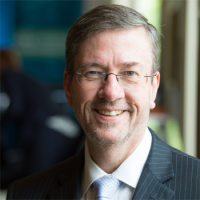Beating COVID-19: Transatlantic Scientific Cooperation during the Pandemic
Inaugural Event in the Wilson Center's Transatlantic Dialogue Series
One year ago, a largely unknown virus changed life as we knew it in the United States, Europe, and the world. While little about the virus was understood, a race for PPE supplies, tests, therapeutics and, most importantly, a vaccine, commenced.
Fast forward to 2021: Multiple authorized vaccines are now available, and many more candidate vaccines are in development -- an amazing feat of science that was reliant on extensive transatlantic cooperation, and not possible for any previous pandemic. How have scientists and public health officials on both sides of the Atlantic cooperated to fight the pandemic? What more can the United States and Europe do to provide equitable access to vaccines around the world and enhance pandemic preparedness and response? What can we learn from each other?
Join us on March 18th, 10AM EST/3PM CET for our inaugural transatlantic dialogue with world-renowned health authorities about the transatlantic COVID-19 response, vaccine development, and scientific cooperation between the United States and Europe.
This event is part of the Wilson Center’s Transatlantic Dialogue Series, a speaker and discussion series hosted in partnership with the Austrian Marshall Plan Foundation, the Austrian Embassy in Washington, DC, and the U.S. Embassy in Vienna.
Quotes
Ambassador Martin Weiss
“Transatlantic cooperation sometimes is a bit of an anemic slogan, but really we know how strong it makes us both. The partners on both sides of the Atlantic are so much stronger for our close cooperation and COVID is only one example.”
Chargé d’Affaires a.i. Robin Dunnigan
“Our transatlantic ties in this field are stronger and broader than people know. Here at the embassy we have approved and facilitated hundreds of visas for travel over this past year of researchers, academics, scientists, public health officials to go to the United States and work with their counterparts to beat COVID.”
Eva Schernhammer
“For [the] scientific enterprise and for us scientists, we have really accelerated in Europe where I would say since I know both systems quite well that in terms of digitalization we were perhaps a little bit behind on the common day approach compared to the United States and have now due to the pandemic had an acceleration in learning how to use these online tools.”
“For me, what was interesting and new is it has not only allowed me to collaborate with medical colleagues or public health colleagues but also in a transdisciplinary fashion. We have all of a sudden dealt with a topic like COVID-19 that is spanned across various disciplines and it has enabled new transdisciplinary collaborations I have never seen before."
Florian Krammer
“This is an unprecedented way of sharing things, of doing science. Again, this is not only transatlantic, this is globally. There was so much data made available early on, on all continents and I think that really helped us to quickly understand the disease, quickly develop vaccines and quickly develop countermeasures.”
“One of the reasons why we now know so much about these variants and how well vaccines work against variants is because vaccine companies and researchers decided that you have to have these trials also in places like South Africa or Brazil. We’re learning a lot, it’s really a global enterprise.”
“I think we really need to strengthen how we investigate viruses like this globally. We need a framework of how to respond to a pandemic, how to prepare for a pandemic, how can we have vaccines much, much quicker, not just after a year or 14 months but really after a few months.”
Jeffrey Koplan
“Beyond the denigration of science, there is also accompanying it a distrust in scientific institutions and it doesn’t apply just to the U.S., it applied earlier in our almost removal from the World Health Organization which I think would have been a disaster.”
“The vaccine is a huge plus. Major accomplishment—something that’s clearly trans-oceanic. The vaccines themselves involve the work and the intelligence and the findings and the ability to work together.”
“We’ve got good vaccines, but some people feel this is an excuse to—to put it bluntly—behave poorly in the face of the outbreak, and that includes government officials and people in leadership roles who are playing the epidemiologist role and I think should stick to governance."
Speakers



Introductions


Moderator

Hosted By

Global Europe Program
The Global Europe Program is focused on Europe’s capabilities, and how it engages on critical global issues. We investigate European approaches to critical global issues. We examine Europe’s relations with Russia and Eurasia, China and the Indo-Pacific, the Middle East and Africa. Our initiatives include “Ukraine in Europe”—an examination of what it will take to make Ukraine’s European future a reality. But we also examine the role of NATO, the European Union and the OSCE, Europe’s energy security, transatlantic trade disputes, and challenges to democracy. The Global Europe Program’s staff, scholars-in-residence, and Global Fellows participate in seminars, policy study groups, and international conferences to provide analytical recommendations to policy makers and the media. Read more


